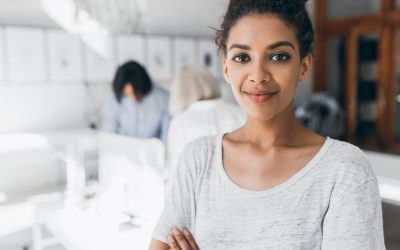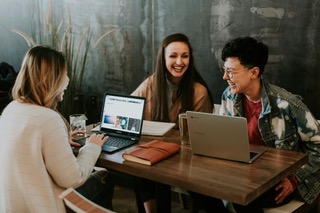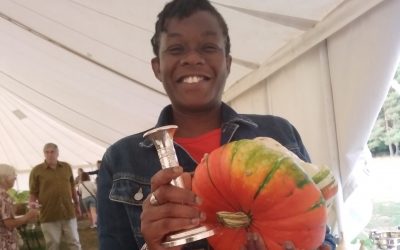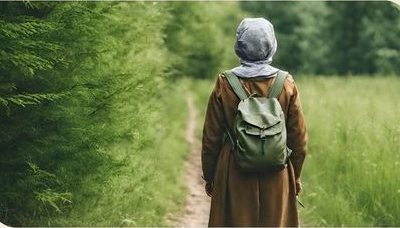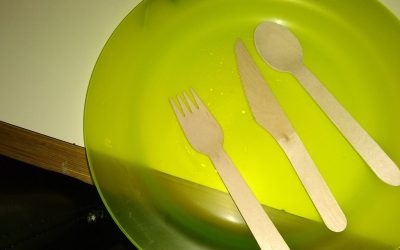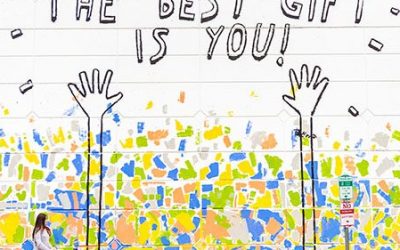Delve into Nour’s experiences as she grapples with the intricacies of cultural adaptation, balancing her Syrian heritage with the demands of academic rigor and societal integration in her adopted country.
Thank you so much for agreeing to be interviewed by TogetherintheUK. We are really interested to learn about you and how you have experienced life in the UK since arriving in the UK from Syria.
- To start with, can you tell us a bit about yourself and also share some memories of Syria so we can gain a small glimpse of you and the country you grew up in?
My name is Nour Morjan, and I’m originally from Syria. I was born and raised in Aleppo. I’m currently training to be a pharmacist in the UK. I did my pharmacy degree at Wolverhampton University. I am passionate about writing and I love poetry. My favourite poet is Nizar Qabani, a famous Syrian poet who lived in the UK in the last few years of his life.
My best memories of Syria were at Eid which is an Islamic celebration that comes twice annually, the first after the month of Ramadan and the second two months later. During Eid, we would visit family starting with the closest family members. Kids get some money as a gift and eat a lot of sweets and chocolate. I used to have a small bag that was full of Eid money and a lot of sweets; I ate a lot of sweet that it gave me tummy ache. It was in many ways similar to Christmas. There was a lot of joy and laughter. A lot of games and fun activities. I used to save the money to buy a toy after Eid.
I had a very active social life in Syria, I was never bored. There was always a wedding or a party to go to. A lot of opportunities to dance and shake our hips.
- Would you like to tell us why you decided to come to the UK and something of your journey here?
I met my partner on the internet, we dated for a while then fell in love. My partner is also Syrian, but he had been in the UK for years when we knew each other. We decided to get engaged and then we got married, and then I moved to the UK. My biggest dream was to study abroad. Being with someone who was already living in the UK gave me the opportunity to peruse my dream. A year before moving to the UK, I started an undergraduate course to study Biotechnology in Syria. In the UK I enrolled in a BSc course in genetics and molecular biology. I later changed my mind just a year before finishing my degree and switched to pharmacy.
- What was the toughest challenge you encountered when you arrived?
One of the biggest challenges was the language barrier. Although I studied English at school from the age of 5, I still felt as if I knew nothing, especially that I had never practised speaking. So, it felt as if I was learning English all over again. The second biggest challenge was the cultural differences. When I came here in 2011, most people still hadn’t heard of Syria yet. The civil war in Syria was in its very early stages when I left, so the country wasn’t in the news the way it was later. I remember when I was first asked about where I came from, and I answered: Syria, people had no clue where it was. At university, my tutor asked the class where we came from (as in where we lived), and I said Syria. I remember how puzzled he was; he was like: and you come here everyday? and I said yeah yeah. This is just one of the embarrassing stories that you get to experience as an immigrant.
When I moved to the UK, I moved to Telford in Shropshire. Usually even some English people don’t know where Telford is. At the time, there wasn’t much diversity in Telford, but now after almost 9 years, it is full of people from different backgrounds, which is amazing to see.
I remember when I first arrived, my partner had to go back to work on the SAME day we arrived, and I just stood in the bedroom feeling how real this big movement to the UK really was. I was excited but soon this excitement turned into depression and isolation. I didn’t know where I could go, who I could speak to, I knew nothing about any kind of events around. To get any sort of social life, we had to go to Birmingham almost every weekend to see my partner’s friends. My partner also had to work during weekends to save up for my education at the time. I didn’t know about volunteering, whether I could work even though my English wasn’t so good at the time and I wasn’t also confident.
- How did you overcome it?
At the beginning, I didn’t. University was my way out of loneliness because I started doing something for myself. It was also something I wanted to do, to obtain my independence as a woman. However, at the beginning, it was so hard to make friends. Everyone wanted to hang out with someone who spoke English fluently but also someone who shared their interests. Actually, during all my university life I struggled with not having similar interests with the other, mostly younger, students.

Gradually my communication skills improved, and I think being in an educational environment all the time helped with this. Eventually, I learnt more about the English culture by meeting more English people who were nice and kind enough to let me into their circles. But this happened outside of university.
- What do you wish you had known?
This is a difficult one. The society in the UK is very complex, and there are differences between different regions within the UK. It is a very diverse country compared to Syria. I do think if I had learnt more about different cultures in general it would have been more helpful. Also, it might have been helpful if I had had the chance to make virtual friends before coming to the UK and get to know them personally later when I had the chance.
- What helped you create your life in the UK?
Having a partner who was already settled in the UK gave me the time and space to create and develop my own life at my own pace. I think that played a huge part. But also the diverse opportunities in this country made me feel that it would be a shame if I didn’t make the most of my life in the UK. It was my dream to study abroad and become an independent woman and it just felt it was the right place for it.
- Can you tell us something about your work and how you found a job?
When I decided to study pharmacy, it was mainly because of the good career prospects that it promised. I was also interested in disease and medicine. I finished my degree in 2019 and soon afterwards, I started my pre-registration training with Boots (this was arranged through the university during the third year of the course). I was due to take my final assessment in Jun 2020, but because of the Coronavirus, this has now been postponed. Hopefully, once I pass the assessment, I will become a qualified pharmacist. I already have a job offer from Boots, having passed a job assessment with them.
- How would you say working culture in the UK differs from Syrian working culture?
I came here without any working experience from Syria. Back home we don’t work unless we obtain a degree, if we are lucky to work in a family business or learn a skill from a young age. A lot of people are self-employed.
For women It is much harder to find a job if they don’t have a degree; opportunities are limited.
In the UK, the only work experience I had was in pharmacies.
I don’t feel it is fair to compare when I didn’t have any working experience back in Syria.
- How have you made friends and created a network?
Through events, organisations, university and social media, I managed to know amazing people from different backgrounds. I worked in an organisation called Shropshire Support Refugees. I started as a volunteer to help translate and put my Arabic language into use to help refugees who came to the UK. Through the organisation, I met a lot of amazing people who became my friends. I also used social media to find people with similar interests to mine.
- What advice would you give to anyone migrating to the UK?
I would say, it is ok that you might encounter some challenges and difficulties. It is ok that your English might not be perfect. The language takes a lot of time to develop and to reach a good level; what you need is good resources, interacting with the right people and patience. You will get many things wrong before you get it right and that is absolutely fine. Don’t feel ashamed or embarrassed because of it. To be able to speak TWO languages is something to be proud of.
There are a lot of organisations nowadays that can help you find friends or attend events. Timepeace is one of them. I met Teresa Norman through a meeting on Zoom organised by Timepeace and during that meeting I heard about this fantastic organisation, Together In The UK so I decided to get in touch and share my experience.
I think after this pandemic, a lot of events will be available online if you can’t physically go to certain events.
There are lots of things to do and to get involved in, and career options are numerous. Learning is not limited to universities. You don’t have to go to university if you don’t want to or if you do not get accepted at one. There are many opportunities to learn and develop yourself through online courses.
Learn how to take care of your mental health. Immigrating and settling into a different country is a long journey that involves a lot of ups and down and unfortunately sometimes disappointments, but isn’t that the case in life in general, whether you are an immigrant or not? Don’t suffer on your own, ask for help. There are a lot of kind people around you who can help you in one way or another.
Get comfortable being outside your comfort zone. It is the key to a better integration with the society around you. Challenge yourself every now and then and go to new places or new events where you don’t know anyone.


